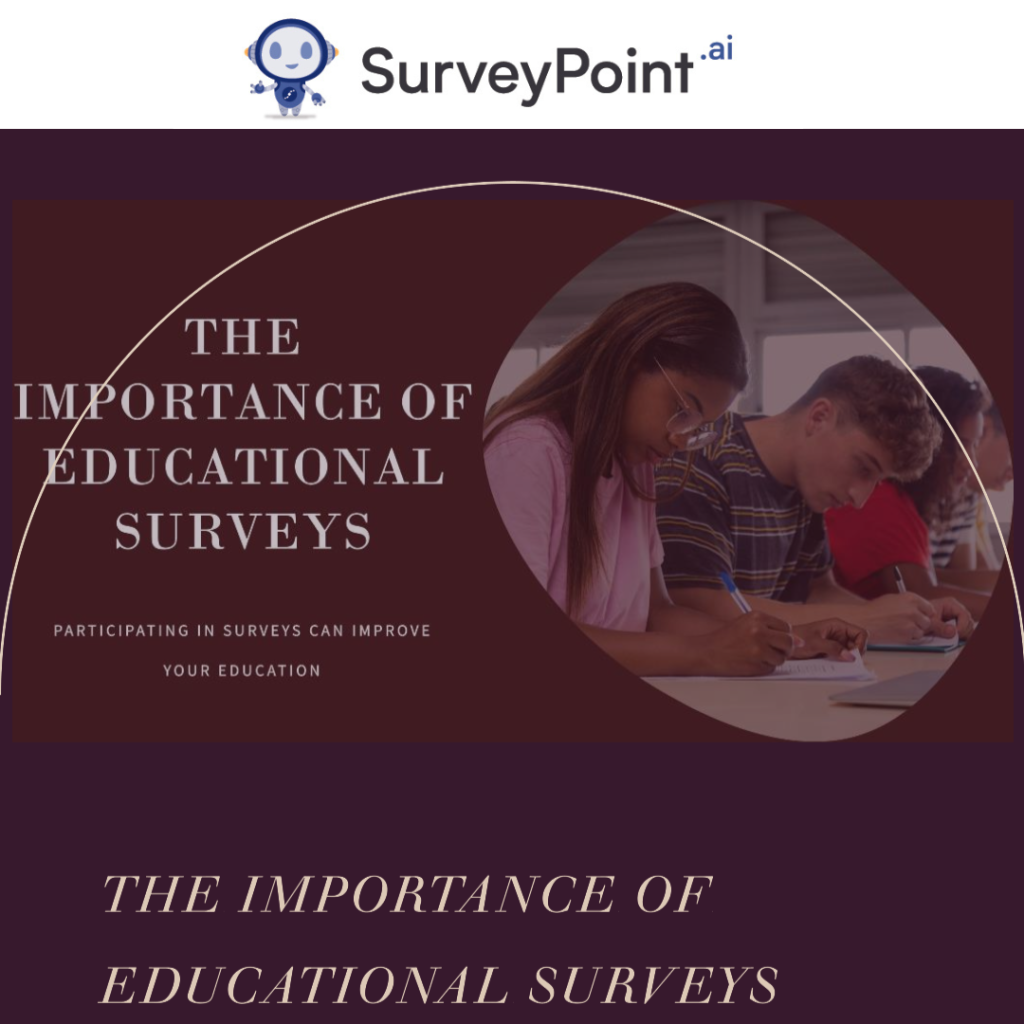To learn about the perspectives of their students, teachers, and other stakeholders, educational institutions frequently conduct education surveys. They simplify the process of learning about the program’s effectiveness and inner workings.

Exactly what entails an Education Survey Questionnaire?
Simply put, an Education Questionnaire is a tool or instrument used in the fields of education and academics. Depending on their intended purpose, education surveys can take on a variety of formats. In order to design a useful education questionnaire, you must first understand the research problem or information that motivates you to collect the data it seeks.
The Role of Education Surveys
Education surveys can play a crucial role in helping countries invest in a comprehensive educational system.
- They allow researchers to learn how students, teachers, and other academics feel about the current educational system.
- They provide valuable input that can be used to enhance the business.
- In order to better manage and administer schools, they collect feedback from stakeholders.
- They help us see problems and opportunities in the system that we might have missed.
Kinds of Education Survey Questionnaire
Questionnaires for students
Student education surveys are a useful tool for gaining insight into students’ perspectives on their educational experiences. Students can voice their opinions on the quality of their education, campus life, and the academic and extracurricular resources available to them through these surveys. Questions about future expectations can be asked of incoming freshmen. Graduating or finishing course students can be surveyed to get their thoughts on the institution’s strengths and weaknesses as well as suggestions for how to make the system even better. These surveys also provide an outlet for students to report concerns to campus administration, such as bullying.
Teacher surveys
Teachers’ perspectives on students’ learning styles, interests, and needs can inform the design of educational surveys. These surveys can be used to get a sense of how teachers feel about things like classroom supplies, school climate, job security, and campus amenities. The results of these polls can be used by educators to make suggestions for enhancing the learning environment and alert the administration to any problems on campus.
- Parental questionnaires
Parents invest a great deal in terms of time, energy, and resources to guarantee a quality education for their children, so it stands to reason that understanding their point of view is crucial. A survey of parents can reveal their thoughts and expectations about the school’s curriculum, teaching staff, and overall atmosphere. They can also be used as a barometer of parental interest in their child’s schooling. These surveys give parents a chance to voice their opinions on the aforementioned topics and offer improvement proposals for the benefit of the organization.
- Administration survey questionnaires
Those who have served in administrative capacities are aware of the strenuous nature of the work.
Educational institutions can benefit greatly from conducting surveys of this nature because they yield invaluable data that can be used for a variety of purposes, including but not limited to: campus safety and security, personnel administration, application processing, supply management, parent and teacher satisfaction, and infrastructure improvement. They are also helpful in the demographic analysis of the school’s faculty and students.
Guidelines for Conducting Effective Educational Surveys
An educational survey is a time- and labor-saving tool. The education survey is widely used, so you can quickly collect data from a sizable sample. This is very important, especially if you have time constraints and limitations. Here are some tips for getting the most out of your educational survey data.
:
- The faster you can come up with questions that your respondents will understand and care about, the better.
- Choose carefully what kind of education questionnaire you want to make so that you can make a document that works better for the study you are conducting.
- In order to make the most of the education questionnaire for meeting your research needs, you should first determine its intended function.
- Determine the breadth and depth of your education survey questions according to the specifics of your study.
Online Education Questionnaire For Students
The fundamental questions that should be asked in any survey of distance learning students
- How quiet is it where you are right now so that you can study?
- How happy are you with the hardware and software that supports your online education?
- How important do you find it to have face-to-face communication when learning remotely?
- How frequent are your interactions with other students at your [school/university]?
- How frequently do you have one-on-one conferences with your educators?
Conclusion
A well-designed educational questionnaire can yield useful data for your research.
Have you made up your mind about taking the education survey yet? We hope you will take full advantage of the resources we have made available to you in the form of downloadable templates and samples.
Using these resources for document creation, you can draft an effective education questionnaire. Get your hands on a sample or model education questionnaire to use as a jumping off point for creating your own.




